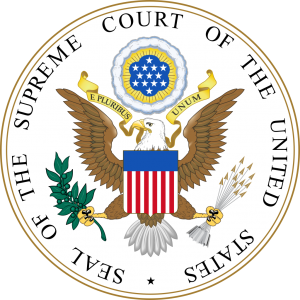Definitions
Wills
A will is the document you create which designates who receives your property when you pass away. If you do not have a will, the state you live in will provide a will for you, and your heirs will be appointed by statute. These heirs might not be the people you would want to inherit your property. Lack of a will may create contention between family members. These problems can easily be resolved by making your own wishes known through estate planning.
If you die without a will, it means you have died “intestate.” When this happens, the intestacy laws of the state where you reside will determine how your property is distributed upon your death. This includes any bank accounts, securities, real estate, and other assets you own at the time of death. Real estate owned in a different state than where you resided will be handled under the intestacy laws of the state where the property is located.
The laws of intestate succession vary greatly depending on whether you were single or married, or had children. In most cases, your property is distributed in split shares to your “heirs”, which could include your surviving spouse, siblings, aunts and uncles, nieces, nephews, and distant relatives. Generally, when no relatives can be found, the entire estate goes to the state.
Living Wills
Once a person is terminally ill and there are no longer viable treatment options, modern medical science has the ability to prolong life at an extreme cost. These expenses may saddle the family with high medical bills at a time of grief and loss, and may prolong the suffering of the dying. You can control what kind of end of life care you receive by executing a living will, which specifies exactly what treatments you do and do not want when that time comes, putting the control in your hands when you are able to make the decision.
Trusts
A trust is a tool which allows you to manage your assets while you are able, and which transfers the management responsibility to someone you designate when you are no longer able to manage your assets yourself. A trust provides much flexibility in transferring assets to others after you are gone. If you have a trust, your estate can avoid the probate process, keeping your wishes and assets private.
Probate
If a loved one has passed away, and either does not have an estate plan, or only has a will, you will need to discuss whether you will need to put the estate through probate. Probate is a legal proceeding, where a judge determines how assets will be distributed. This process can be quite lengthy and should be handled by an attorney.
Special Needs Trust
Do you have a special needs child? Do you support a special needs adult? If you have answered yes to either of the above, you should consider how to protect your special needs dependent once you are gone. You can create a trust for the benefit of your special needs child. In the trust document, you can designate how funds are to be allocated once you are gone and who will make these decisions. Your child will be protected from receiving a potentially large sum of money without restriction. You can make sure your assets provide for your child long after you’re gone.
Guardians
If you have minor children (children under 18 years of age), you need to designate a guardian to raise your children should something happen to both parents. If you have not designated guardians and something happens to both parents, a court will determine what is in the apparent “best interest” of the child. Oftentimes, these situations lead to contentious and expensive litigation between family members. Preserve the peace and decide what is best for your child should something happen to you.
Financial Powers of Attorney
If you are unable to handle your own finances due to an accident or illness, you can provide for a trusted friend or family member to handle your finances while you are not able. You can specify what powers the designee holds and how money is to be spent. If you do not have a financial power of attorney and you are unable to pay your bills, you can end up with significant financial problems. These problems can be easily avoided with the proper planning.
Medical Powers of Attorney
If you are unable to make decisions for your own medical care due to an injury or illness, a medical power of attorney will allow you to appoint someone to make medical decisions for you. A living will provides your instruction for end of life care. Make sure you have these documents in place so you can get the medical care you need and provide your wishes if you become unable to communicate them yourself.
Thank You


Thanks for your interest. I know you have a lot of options when it comes to legal planning. Desmond Law, PLLC has been the trusted partner of the Scottsdale area residents. I look forward to meeting with you. Schedule today!
Free Report
No Time For Mistakes
Learn The Six Major Mistakes Families Make When Choosing An Estate Planning Attorney ... And How To Make A Loving Choice For Your Family
Let me help you protect the people and things you love to make sure they stay out of court and out of conflict.
Enter your name and email address so we can send it to you. We love your privacy – we will never spam you.













Menu
Contact Us
10565 N 114th Street
Suite 113
Scottsdale, AZ 85259
(480) 848-9550





Copyright © 2024 Desmond Law, PLLC All Rights Reserved | Privacy Policy | Cookie Policy
DISCLAIMER: No information you obtain from this website or its content is legal advice, nor is it intended to be. You should consult an attorney for individualized advice regarding your own situation. No attorney-client relationship is intended or formed by your viewing this website or downloading and using the content, forms, tips or information kits found on this website. No attorney-client relationship is intended or formed without a fully-executed, written agreement to enter into such a relationship. Client testimonials or endorsements do not constitute a guarantee, warranty, or prediction regarding the outcome of your legal matter.



